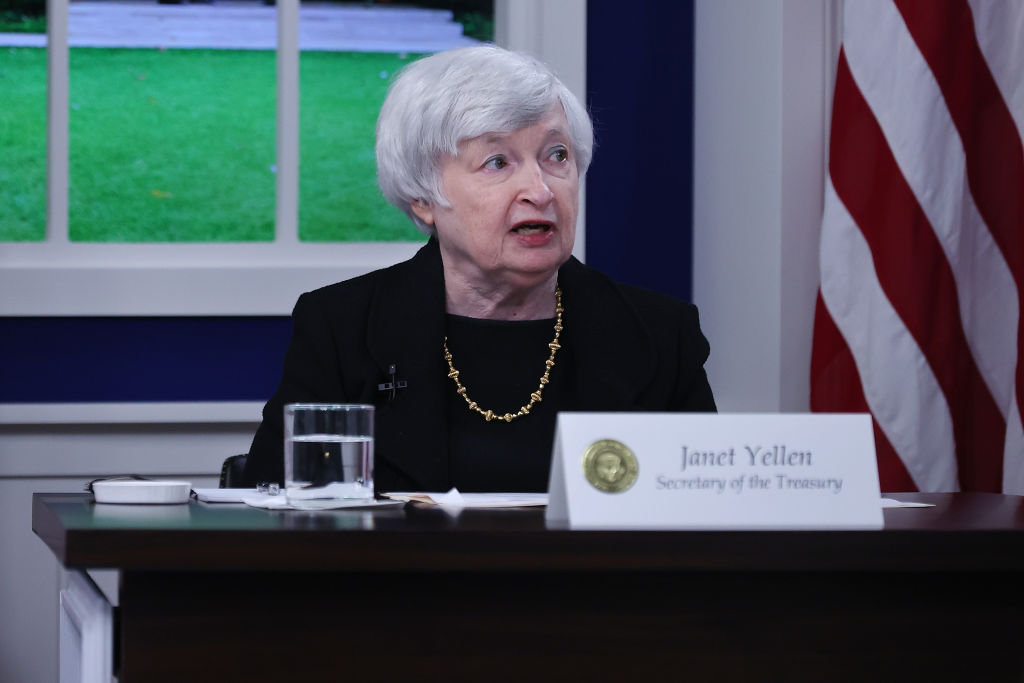
Treasury Secretary Janet Yellen said she expects price increases to remain high through the first half of 2022, but rejected criticism that the U.S. risks losing control of inflation.Inflation is expected to ease in the second half as issues ranging from supply bottlenecks, a tight U.S. labor market and other factors arising from the pandemic improve, Yellen said on CNN’s “State of the Union” on Sunday. –≠.
“I don’t think we’re about to lose control of inflation,” Yellen said, pushing back on criticism by former Treasury Secretary Lawrence Summers this month. “Americans haven’t seen inflation like we have experienced recently in a long time. But as we get back to normal, expect that to end.”
On Friday, Federal Reserve Chair Jerome Powell sounded a note of heightened concern over persistently high inflation as he made clear that the central bank will begin tapering its bond purchases shortly but remain patient on raising interest rates.
The S&P 500 Index posted its first decline in eight days. Powell said policies are “well-positioned” to manage a range of outcomes.
Yellen declined to say how she’s advised President Joe Biden on his decision whether to reappoint Powell. However, she said that financial regulation “markedly strengthened” under Powell’s term, as it did during hers and under her predecessor, Ben Bernanke.
As the pandemic added stress to the financial markets, “the core of our financial system did very well because of the improvements in capital liquidity, risk management, stress testing,” Yellen said. “And those improvements have stayed in place during the Powell regime.”
Debt Ceiling
She also said it’s “utterly essential” to raise the U.S. debt ceiling, reiterating earlier warnings about the consequences of a potential U.S. default.
The U.S. posted the second-largest annual budget deficit on record for 2021 as pandemic-relief spending sustained the federal government’s massive borrowing needs.
The deficit for the fiscal year through September was $2.77 trillion, compared with the $3.1 trillion peak seen in the previous year, according to a Treasury Department report in the past week. As a share of the economy, the deficit narrowed to 12.4% in the fiscal year, from 15% in 2020 — the biggest since World War II.
“It’s a housekeeping matter, doing what’s necessary to pay our bills,” she said. “I have confidence it will get done.”
© 2021 Bloomberg L.P.
More Must-Reads from TIME
- Donald Trump Is TIME's 2024 Person of the Year
- Why We Chose Trump as Person of the Year
- Is Intermittent Fasting Good or Bad for You?
- The 100 Must-Read Books of 2024
- The 20 Best Christmas TV Episodes
- Column: If Optimism Feels Ridiculous Now, Try Hope
- The Future of Climate Action Is Trade Policy
- Merle Bombardieri Is Helping People Make the Baby Decision
Contact us at letters@time.com